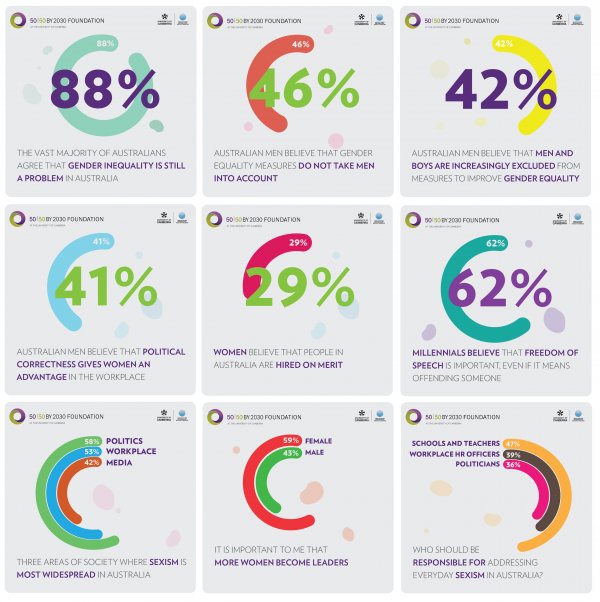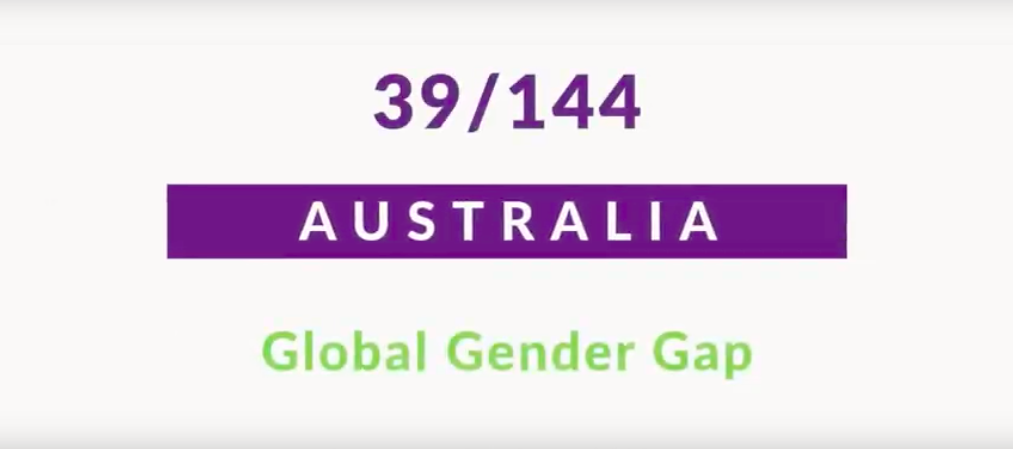Late last year the World Economic Forum released its Global Gender Gap report for 2018, and it’s not good news for Australia. Yet again, we’ve slid backwards on the global scale, now ranking 39 out of 149 countries.
And it doesn’t get any better when you drill down to the individual measures. In ‘Economic participation and opportunity’ we’re ranked 46th, while ‘Political empowerment’ earned us the downright abysmal score of 49.
For a country that year after year boasts number 1 ranking for gender equality in education, this simply isn’t good enough.

We’re barely through January, but even just a cursory glance at the recent events gives us an indication of our dire straits.
The Liberal Party’s ‘woman problem’ gained much media attention in 2018, and despite some attempts to deflect the sad statistics, 2019 didn’t exactly get off to a stellar start with the announcement that the Minister for Jobs and Women, Kelly O’Dwyer would not recontest her seat at the next election.
Citing family, and ‘not politics’ as the reason for her decision, the statement highlighted the inherent problem with the false binary.
As Mark Kenny, Senior Fellow at the Australian Studies Institute at the Australian National University recently observed, “That federal politics is hard on families and relationships is hardly news, but the slew of resignations / defections underscores how little has been done to change things”.
The ‘personal’ certainly appears an awful lot like ‘private’ in 2019
Despite decades of work to acknowledge that the societal structures and individuals do not operate in isolation, the ‘personal’ certainly appears an awful lot like ‘private’ in 2019.
Politics aside, the controversy surrounding Gillette’s high budget short film ‘We believe: The best men can be’ showed just how embedded gender inequalities are in the culture.
Drawing attention to the #MeToo movement and toxic masculinity among other things, the advertisement sparked a significant backlash online. One of its loudest critics, British commentator Piers Morgan went as far as to argue that only “radical feminists” love it “because it portrays men as bad”.
The Gillette short film addressing toxic masculinity sparked outrage online
While it would be all too easy to dismiss these incidents as nothing but anecdotes, data from a national survey shows that the culture and societal attitudes are indeed a significant issue in Australia.
In September last year, the 50/50 by 2030 Foundation released its first major research report From girls to men: Social attitudes to gender equality in Australia, which revealed some worrying trends.
While in theory most Australians support and believe in gender equality, men, and in particular millennial men, increasingly feel left out of the gender equality conversations. What’s more, many believed that political correctness gives women an advantage in the workplace.

But despite the rocky start to the year, we have also had some much needed good news that give us reason to believe that we can overcome the present challenges.
Virginia Haussegger AM, Director of the 50/50 by 2030 Foundation, had the great honor of being named as the ACT Australian of the Year 2019 in recognition of her ongoing and tireless efforts to advance women’s empowerment and gender equality.
As Haussegger was quick to point out, Australia has made “good progress over the past several decades, and we ought to applaud the women who have worked so hard to make that happen”.
However, we have hit a period of complacency, with many still believing that the situation will naturally correct itself as more women enter the workforce – despite all the evidence to the contrary. The fact that many men feel excluded from one of the key debates of our time is equally disconcerting.
What we now need is concerted effort to broaden the discussion so that we can change the direction. As noted by Haussegger: “We need to work harder to include men and boys in the discussion and search for solutions to gender inequality.”
Roll up your sleeves, people, we’ve got some work to do.
2019 – It’s time!




